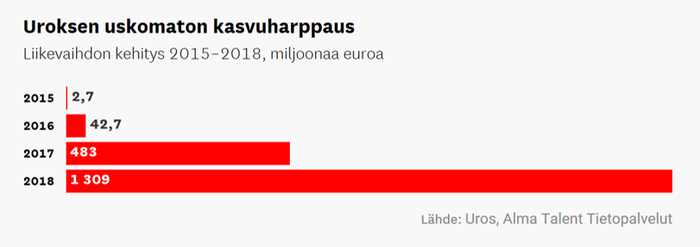Qualcomm launched its Smart Cities Accelerator Program with over 40 partners, but fast-growing Finnish company Uros is the only European representative.
June 3, 2019

Qualcomm launched its Smart Cities Accelerator Program with over 40 partners, but fast-growing Finnish company Uros is the only European representative.
Qualcomm recently joined hands with 45 companies that have been using its technologies to set up a community called “Smart Cities Accelerator Program”. The program aims to provide cities, municipalities, government agencies, and enterprises around the world with ecosystem solutions for Smart Cities applications. The member companies included “hardware and software providers, cloud solution providers, system integrators, design and manufacturing companies, as well as companies offering end-to-end solutions with Smart Cities in mind”, the world’s leading chip maker said in a statement.
“The Qualcomm Smart Cities Accelerator Program is a central hub for Smart Cities solution providers,” said Sanjeet Pandit, senior director of business development and head of Smart Cities at Qualcomm. “By working with proven expertise and deployed solutions, cities, municipalities, government agencies and enterprises can speed the realization of their Smart Cities visions. This program aims to foster a rich ecosystem of B2B collaborations that we hope will speed the development and deployment of Smart Cities solutions around the globe.”
Most of the companies are based out of North America and Asia, including familiar names like Compal or Verizon. The sole representative of Europe is Uros, a Finnish private company that has undergone fast growth in recent years. According to the Finnish publication Talouselämä, the company’s turnover grew from €2.7 million in 2015 to €1.3 billion in 2018, an increase of nearly 500 times in three years. Uros is based in Oulu in northern Finland, dubbed the country’s “Radio Valley” which used to be Nokia’s heartland to develop radio technologies and produce base stations. The owner and the current CEO were both Nokia veterans.

Uros started its business with a roaming application to help consumers save roaming cost, by which it developed an extensive network with the world’s mobile operators. It then saw the opportunities in IoT, which, though still predominantly short-range, will see wide range, especially cellular IoT gaining share and outpacing the other types of connectivity. Ericsson estimated that over 22.3 billion IoT connections will be on the internet by 2024, including 4.1 billion cellular IoT. The smart city sector will benefit from 5G in a big way.
In addition to smart connectivity solutions, including its industrial products and sensors, Uros will also bring to the table its expertise in data analytics in natural resources management, waste reduction in industrial processes, and turnkey IoT solutions. Its participation in the Qualcomm program must also have to do with its long collaboration with the chip maker, which has been respected by Qualcomm. “Whenever we have a new chip, we will call them about it. They will come up with a new way of using it,” Qualcomm’s Pandit told Talouselämä. “It is not that others can’t develop the same technologies, but they are always the first because they think ‘out of the box’, in their own original way.”
Uros was set up in 2011 and has about 60 employees.
About the Author(s)
You May Also Like








.png?width=300&auto=webp&quality=80&disable=upscale)


_1.jpg?width=300&auto=webp&quality=80&disable=upscale)


.png?width=800&auto=webp&quality=80&disable=upscale)